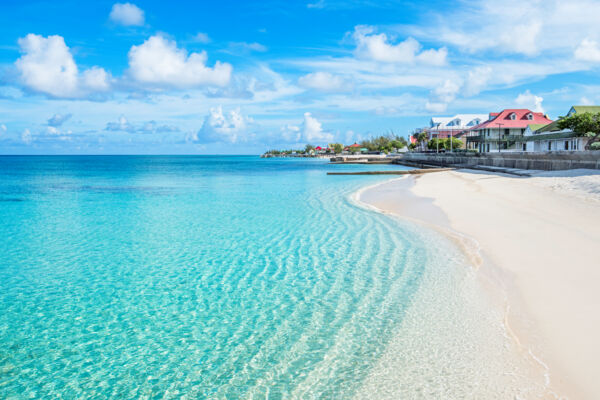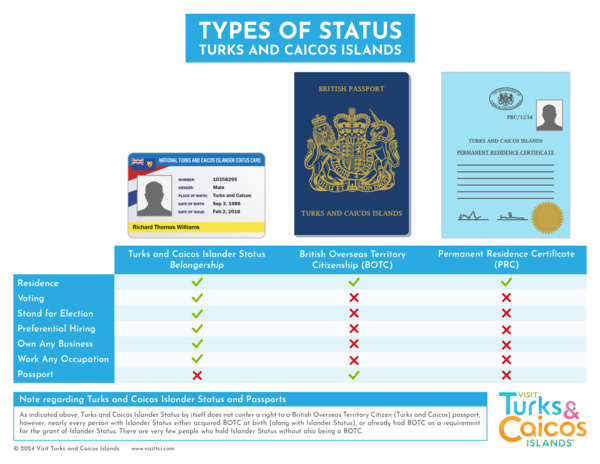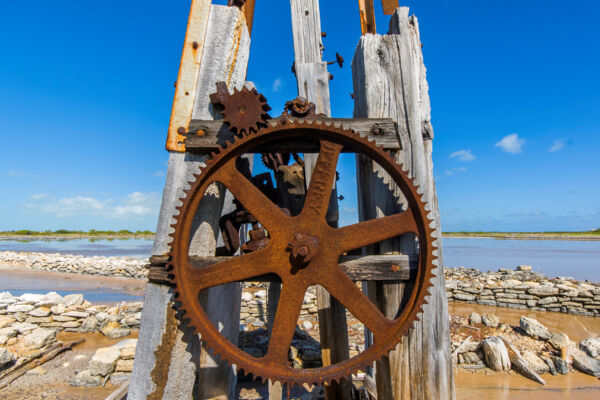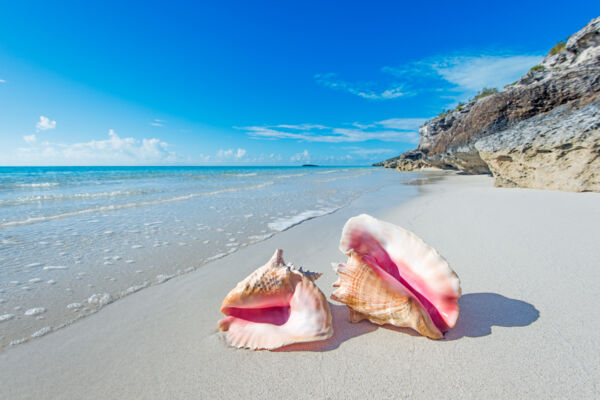Turks and Caicos Islander Status (Belongership)

Turks and Caicos Islander Status, previously titled Belongership, is the highest level of immigration status in the Turks and Caicos Islands. It is required to vote, stand for public office, benefit from many government programmes, and own many types of businesses. Whereas Islander Status is akin to citizenship for most practical purposes, notably, simply holding Islander Status does not confer the right to a passport. Passports are issued to holders of British Overseas Territories Citizens (BOTCs).
While holding British Overseas Territories Citizenship gives you access to a passport, it doesn’t confer many rights apart from residency. Voting, some occupations, and owning many types of businesses are not permitted if you only hold citizenship (BOTC), without also holding Islander Status.
Virtually everyone with Islander Status has the right to British Overseas Territories Citizenship (and a passport), but the reverse is not true (persons with British Overseas Territory Citizenship don’t have a right to Islander Status).
Prior to the 2011 Constitution, Turks and Caicos Islander Status was titled Belongership and persons holding this status were called Belongers. The term Belonger is commonly used today as a synonym for persons with Islander Status.
Population
Beginning with the advent of self-rule in 1976, the percentage of Turks and Caicos Islanders / Belongers as a share of the population declined considerably. Around 2002, the number of Turks and Caicos Islanders fell to less than half the population.
Today, less than 1 in 4 residents of the Turks and Caicos Islands hold Islander Status, with 19% of the population registered to vote (based on the 2022 population estimate and 2023 registered voter list).

Understanding Islander Status and Citizenship
The Turks and Caicos Islands is not a sovereign country, but is a British Overseas Territory. As such, it cannot issue passports directly, and instead British Overseas Territory Citizenship passports are issued by the United Kingdom on behalf of the Turks and Caicos.

Background: Citizenship of the UK and Colonies
Up until 1983, there was a single citizenship for the UK and Colonies. Persons in the United Kingdom, and the Turks and Caicos, would have been issued the exact same passport (a ‘UK and Colonies’ passport). The actual right to live and work in each jurisdiction, such as the United Kingdom, depended on whether you had right-of-abode in a jurisdiction. This normally was granted automatically at birth in the jurisdiction, or to parents who had right-of-abode. It could also be granted to persons based on the laws of the jurisdiction (typically based on legal residency).
The Overseas Territories used the Belongership system as a sort of 'local citizenship' and made Belongership a requirement to exercise rights normally associated with citizenship. This is because the actual passport someone in Turks and Caicos had would be the same passport as someone in the United Kingdom, and there needed to be a way to distinguish and discriminate amongst different holders of the same passport to clarify what rights they had in an Overseas Territory. Belongership was thus the local equivalent for ‘right-of-abode’ in the United Kingdom.
1981 British Nationality Act
With the introduction of the British Nationality Act in 1981 (effective 1983), ‘UK and Colonies’ citizenship was broken up into several different British distinct nationalities. These included British Citizenship, which was for persons associated with the United Kingdom only, and British Overseas Territories Citizenship, which was for the Overseas Territories. Whereas all nationals of the Overseas Territories had the same British Overseas Territories Citizenship, they essentially held it 'by virtue' of a connection with a specific Territory, meaning that in essence, each Territory now had their own citizenship and passport. From 1983 onwards, passports issued by each of the overseas Territories state the name of the Territory on the cover, and is essentially territory-specific citizenship in practice.

This in essence made the reason for the Belongership system throughout the Overseas Territories redundant, however, the Overseas Territories kept it. This was because the acquisition of British Overseas Territories Citizenship was governed by the British Nationality Act, and provided clear, enumerated, and consistent requirements for acquisition of this nationality. The Overseas Territories preferred their local system of Belongership, as it allowed them to bestow and revoke Belongership as local politicians saw fit, without involvement or control by the United Kingdom. It should be noted, however, that it’s generally not possible to naturalize as a British Overseas Territory Citizen unless a person has permanent status in an Overseas Territory already, such as via Belongership/Islander Status or a locally-granted status such as a Permanent Residence Certificate (PRC). Thus, the granting of British Overseas Territory Citizenship, whilst governed by the British Nationality Act, was de facto within local Territory control, as the Overseas Territories had full control over whether to grant Belongership and/or a PRC, which was a prerequisite for naturalization as a British Overseas Territory Citizen.
Nonetheless, the Belongership system persisted after the breakup of ‘UK and Colonies’ nationality and the introduction of Territory-specific British Overseas Territory Citizenship.
Second-class citizens
Thus, the result is that persons with Belongership/Islander Status hold what is equivalent to citizenship in other countries, and persons holding British Overseas Territories Citizenship without Belongership/Islander Status are more of a second-class citizen or ‘permanent resident’, with a vastly reduced set of rights, opportunities, and government protections. Citizens without Islander Status as well have few rights beyond those of a temporary worker on a work permit.
Acquisition of Turks and Caicos Islander Status
Islander Status can be acquired by right (typically birth in the Islands to a parent who has Islander Status), or by grant (typically residency or marriage). Acquisition by grant is not a right and the requirements listed below are only guidelines. Even if an applicant meets all of them, Islander Status may not be granted.
By Right
By birth in the Islands
- At least one parent, grandparent, or great-grandparent has Islander Status at the time of birth.
By birth outside the Islands
- At least one parent, grandparent, or great-grandparent has Islander Status and was born in the Islands.
or
- At least one parent has Islander Status acquired by grant at the time of birth, and
- the parent is settled in the Islands at the time of birth.
By adoption
- At least one parent has Islander Status at the time of adoption, and
- Person is less than 18 years of age at the time of adoption.
By Grant
By Virtue of Residency and BOTC or British Citizenship
An application for Islander Status by grant is subject to minimum requirements, but is then judged against a set of criteria under a points system. The points system uses a variety of factors, including an applicant’s age, national origin, current occupation, and marital status in order to rank candidates.
Minimum requirements:
- Must be a BOTC by virtue of a connection with the Turks and Caicos, or a British Citizen, and
- Be a PRC holder for at least 5 years or legally resident for 10 years (i.e. on a work permit), and
- Not be incarcerated or declared bankrupt in any country.
By Marriage
- The spouse with Islander Status cannot have obtained it via marriage, and
- Applicant must have resided with spouse for at least 10 years, and
- Applicant must have resided in the Turks and Caicos for two years prior to application.
Dependent Child of a Spouse of an Islander
- Is the biological child of a person who acquired Islander Status via marriage, and
- Is under 18 years of age.
Special Provision for persons registered BOTC under section 15(4) of the British Nationality Act
- Applicant must have been born in the Islands, and
- Parents must have had legal status at the time of birth, and
- Applicant must be 18 years of age or over, and
- Applicant must have legally resided in the islands for at least 10 years.
| Turks and Caicos Islander Status Fees | |
| Non-refundable application fee | $150 |
| Islander Status via Marriage | $1,500 |
| Islander Status via BOTC/British Citizenship | $5,000 |
| Islander Status Card |
First issue free $50/replacement |
